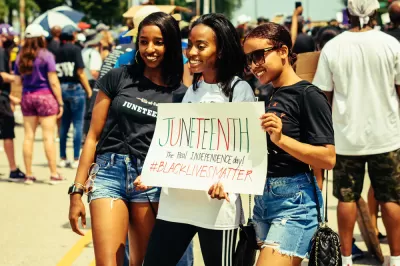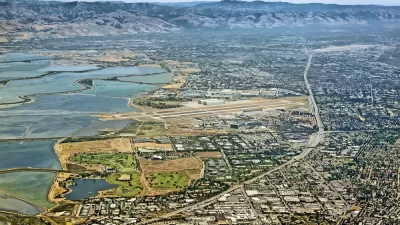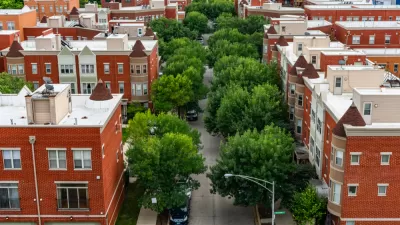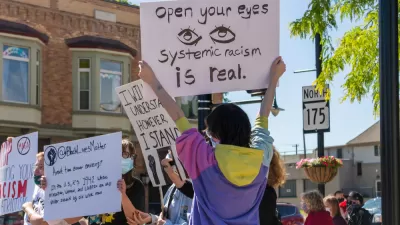On a holiday that commemorates the end of slavery in the United States, the White House marked the occasion by discussion exclusionary zoning.

In a remarkable moment that reveals how far the historical understanding of racism has come in recent years, an article on WhiteHouse.gov commemorates Juneteenth by examining the racial discrimination effect of exclusionary zoning.
Juneteenth, as explained in the article, marks the day a Major General of the Union Army arrived in Galveston, Texas to enforce the Emancipation Proclamation, and free the last enslaved Black people in Texas from bondage.
Given the historic significance of the date, and its increasing relevance as race continues to take central stage in the culture war, it might come as a surprise that zoning is on the mind of the Biden administration. The confrontation with the racism of the country in news media and politics at every level of government in recent years has include an account of the past discrimination and racism of planning policies.
While a nascent effort to undo some of the racist policies of the past is underway in some cities and states, much of which has focused on the exclusionary effects of single-family zoning, the idea zoning reform as a tool for equity is still relatively new in the halls of the federal government. The Biden administration has taken the cause of zoning reform to new levels of visibility by proposing a competitive grant program that would encourage cities to begin to dismantle the tools of exclusionary zoning. The Unlocking Possibilities Program would provide $5 billion in competitive grants as an incentivize for zoning reforms. (The Biden administration's Unlocking Possibilities Program closely follows the Housing Supply and Affordability Act proposed by Senator Amy Klobuchar (D-Minnesota), Senator Tim Kaine (D-Virginia), and Senator Rob Portman (R-Ohio) in March 2021.")
So, the White House Juneteenth article lays out the case for the program and for the movement.
"[I]t is imperative to not lose sight of the fact that we still have much work to do to address the vestiges of slavery and historic discrimination," reads the article. Exclusionary zoning, according to the article, is one of those policies and practices in existence today "that are seemingly non-discriminatory on their face but still negatively affect many families of color, especially Black families."
The article provides a history, full of links to research sources, about the evolution of exclusionary zoning as a tool of racism and discrimination.
FULL STORY: Exclusionary Zoning: Its Effect on Racial Discrimination in the Housing Market

Manufactured Crisis: Losing the Nation’s Largest Source of Unsubsidized Affordable Housing
Manufactured housing communities have long been an affordable housing option for millions of people living in the U.S., but that affordability is disappearing rapidly. How did we get here?

Americans May Be Stuck — But Why?
Americans are moving a lot less than they once did, and that is a problem. While Yoni Applebaum, in his highly-publicized article Stuck, gets the reasons badly wrong, it's still important to ask: why are we moving so much less than before?

Research Shows More Roads = More Driving
A national study shows, once again, that increasing road supply induces additional vehicle travel, particularly over the long run.

Judge Halts Enforcement of Anti-Homeless Laws in Grants Pass
The Oregon city will be barred from enforcing two ordinances that prosecute unhoused residents until it increases capacity and accessibility at designated camping sites.

Advancing Sustainability in Los Angeles County Schools
The Los Angeles County Office of Education’s Green Schools Symposium brings together educators, students, and experts to advance sustainability in schools through innovative design, climate resilience strategies, and collaborative learning.

Using Old Oil and Gas Wells for Green Energy Storage
Penn State researchers have found that repurposing abandoned oil and gas wells for geothermal-assisted compressed-air energy storage can boost efficiency, reduce environmental risks, and support clean energy and job transitions.
Urban Design for Planners 1: Software Tools
This six-course series explores essential urban design concepts using open source software and equips planners with the tools they need to participate fully in the urban design process.
Planning for Universal Design
Learn the tools for implementing Universal Design in planning regulations.
City of Moreno Valley
Institute for Housing and Urban Development Studies (IHS)
City of Grandview
Harvard GSD Executive Education
NYU Wagner Graduate School of Public Service
City of Cambridge, Maryland
Newport County Development Council: Connect Greater Newport





























